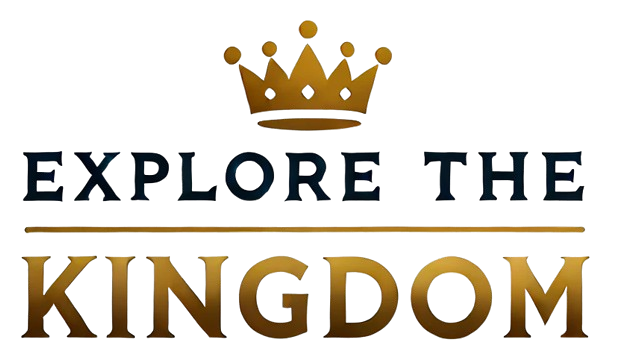In an era characterized by rapid technological advancement and an ever-evolving digital landscape, the institution of monarchy faces unique challenges and opportunities. Monarchies, often steeped in centuries of tradition, are now tasked with reconciling their historical roles with the demands of modern society. This article explores how contemporary monarchies are navigating the complexities of the digital age, balancing tradition with innovation, and the implications of these changes for their relevance and continuity.
The Role of Monarchies in the Digital Age
Monarchies have historically played a significant role in shaping national identity and cultural heritage. They symbolize continuity and stability, often serving as unifying figures in times of political upheaval. However, the digital age has introduced new dynamics that require these institutions to adapt. The rise of social media, instant communication, and the democratization of information has transformed how monarchies engage with the public, manage their image, and fulfill their ceremonial roles.
The Challenge of Public Perception
One of the most pressing challenges for modern monarchies is managing public perception in an age where transparency is demanded. Traditional media platforms, such as newspapers and television, have been largely supplanted by social media platforms like Twitter, Instagram, and Facebook. These platforms allow for immediate dissemination of information, enabling the public to engage directly with royal figures. While this can foster a sense of accessibility and intimacy, it also leaves monarchies vulnerable to criticism and misrepresentation.
For example, the British royal family has adeptly utilized social media to connect with younger audiences, sharing glimpses into their lives and charitable endeavors. However, this approach has not been without its pitfalls. The recent controversies surrounding Prince Harry and Meghan Markle illustrate how quickly narratives can shift in the digital space. The couple’s decision to step back from royal duties and their subsequent media dealings sparked intense public debate, showcasing the dual-edged sword of increased visibility.
Embracing Innovation
Despite these challenges, many monarchies have embraced the digital age, using technology to modernize their operations and outreach. For instance, the Swedish royal family has established a robust online presence, utilizing platforms like Instagram to share insights into their lives and work. This has humanized the monarchy and engaged a broader audience, particularly younger generations who may feel disconnected from traditional institutions.
In addition, many monarchies are leveraging technology for charitable initiatives. Virtual fundraising events, live-streamed engagements, and online campaigns have become more common, allowing royal families to raise awareness and funds for various causes. This approach modernizes their philanthropic efforts and aligns with the values of transparency and accessibility that the public increasingly demands.
Tradition vs. Modernity
The tension between tradition and modernity is perhaps most evident in ceremonial practices. Monarchies are often custodians of rich histories and customs, which can be difficult to reconcile with contemporary values. For instance, the British monarchy’s ceremonial events, such as Trooping the Colour and state banquets, are steeped in tradition. However, there is growing pressure for these events to reflect modern sensibilities, particularly regarding inclusivity and representation.
Some monarchies have begun to adapt their traditions to better align with contemporary values. For example, the Dutch royal family has tried to promote diversity within their ceremonial practices, reflecting the multicultural nature of modern society. By incorporating representatives from various communities into state functions, they signal an understanding of the importance of inclusivity in fostering national identity.
The Impact of Globalization
Globalization has also influenced the evolution of monarchies in the digital age. Increased interconnectedness has led to the rapid exchange of ideas and cultural practices, prompting monarchies to reflect on their roles within a broader global context. Many royal families now engage in international diplomacy, promoting cultural exchange and fostering relationships with foreign nations.
The Thai monarchy, for example, has utilized social media to present a more modern image to the world while preserving its traditional values. The royal family shares content highlighting Thailand’s rich culture and heritage, appealing to domestic and international audiences. This strategy not only strengthens national pride but also positions the monarchy as a key player in the global cultural landscape.
The Future of Monarchies
As we look to the future, the sustainability of monarchies in the digital age will largely depend on their ability to adapt to changing societal norms and expectations. The increasing demand for accountability and transparency will require royal families to navigate a delicate balance—maintaining their traditional roles while being responsive to the evolving needs of their constituents.
One potential avenue for adaptation is integrating technology into monarchies’ decision-making processes. Some royal families have begun to explore participatory governance models, where citizens can discuss policy issues and have a voice in matters that affect their lives. This approach democratizes monarchy and fosters a sense of shared responsibility and collaboration between the royals and the public.
Conclusion
Digital-age monarchies are at a crossroads, where tradition must coexist with modernity. The challenges posed by the digital landscape—such as managing public perception, embracing innovation, and reconciling tradition with contemporary values—are significant but not insurmountable. Monarchies can remain relevant in an increasingly complex world by leveraging technology, engaging with their audiences, and adapting to the changing social fabric.
Ultimately, the future of monarchies will depend on their ability to navigate these challenges while honoring their historical legacies. As they embrace the opportunities presented by the digital age, these institutions can find new ways to connect with the public, uphold their ceremonial roles, and continue to play a vital part in their countries’ cultural and national identity. The journey ahead may be fraught with obstacles. Still, it also holds the promise of a more dynamic and inclusive monarchy—one that resonates with tradition and modern society’s aspirations.


